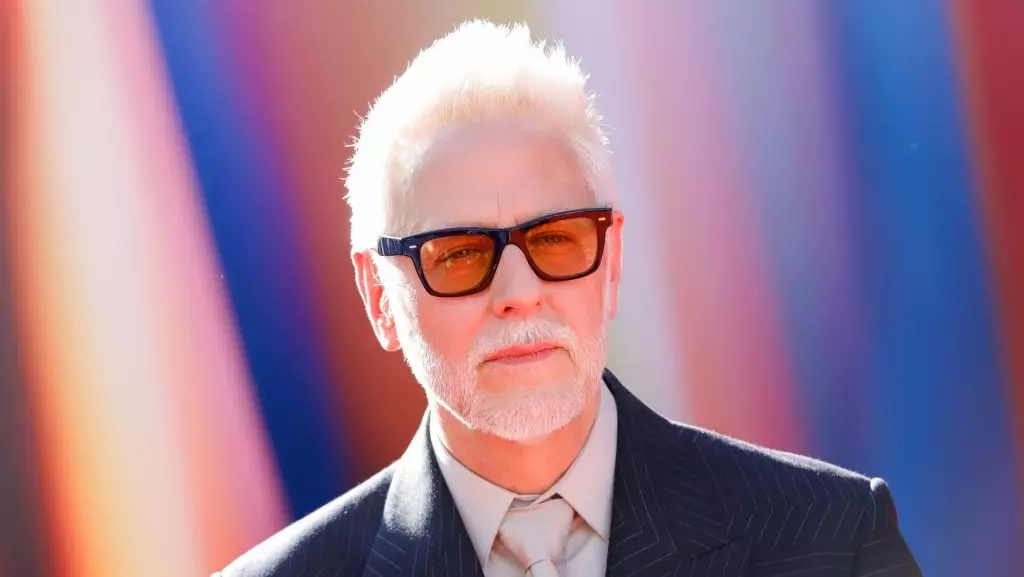James Gunn’s career trajectory exemplifies resilience and strategic reinvention in Hollywood’s volatile superhero genre. Once celebrated for his vivid storytelling in Marvel’s “Guardians of the Galaxy,” his departure in 2018 left industry insiders questioning his next move. Gunn’s declaration that he “thought my career was over” underscores the precarious nature of Hollywood fame and the importance of adaptability. Yet, within a few years, Gunn seized a new frontier—co-leading DC Studios alongside Peter Safran—which signals not just a career reset but a bold shift in superhero storytelling. His journey reveals that perseverance, coupled with a keen sense of opportunity, can redefine one’s professional destiny even after setbacks.
What is striking about Gunn’s move is his ability to navigate between rival studios without burning bridges. His recounting of conversations with Warner Bros. executives and Disney executives illustrates his diplomatic approach. Rather than succumb to resentment or guilt, Gunn maintained professionalism, emphasizing support from Marvel colleagues like Kevin Feige and Louis D’Esposito. This indicates that Gunn’s strength lies in his integrity, allowing him to switch allegiances while preserving industry relationships. Such a perspective is vital in an industry often marred by rivalry and competition. Gunn’s journey underscores that strategic shifts do not need to come at the expense of personal values or professional respect.
Reimagining the Superhero Genre: Gunn’s Vision for the DC Universe
Gunn’s ambitious entry into DC with “Superman” and the overarching “Gods and Monsters” phase signals a fundamental shift in how superhero narratives are constructed. Traditionally, superhero films have often been grounded in tried-and-true formulas—larger-than-life villains, epic battles, and clear moral dichotomies. Gunn’s reputation for blending humor, irreverence, and depth suggests that his DCU will challenge these conventions.
He appears committed to crafting a universe that prioritizes character-driven stories, exploring the complexities beneath iconic personas. Casting David Corenswet as Superman, alongside a diverse ensemble cast, indicates an intent to freshen the franchise while honoring its legacy. Gunn’s approach implies that the new DC universe will not be merely a collection of spectacle but a nuanced exploration of what it means to be a hero in a flawed world. His prior work demonstrates a talent for balancing humor with emotional depth, which could set the tone for an innovative era in superhero cinema.
Moreover, Gunn’s candidness about feeling no “ethical dilemma” in shifting from Marvel to DC highlights his pragmatic understanding of creative independence. Rather than perceive it as a betrayal, he views his movement as an extension of his artistic ambitions. This mindset encourages a more fluid, less contractual view of studio allegiances—a perspective that could revolutionize how filmmakers approach franchise building. His vision promises a franchise that is not constrained by studio loyalties but driven by storytelling integrity and personal passion.
Industry Implications and the Bravery of Artistic Authenticity
Gunn’s journey and his current direction embody a broader lesson for Hollywood: authentic storytelling and honesty can forge a more meaningful connection with audiences. His openness about the industry’s support system—from Marvel colleagues to Warner Bros.—depicts a professional who values genuine relationships over corporate loyalty. This attitude may influence upcoming filmmakers to prioritize authenticity over industry politics, fostering a more collaborative creative environment.
Additionally, Gunn’s willingness to embrace risk by establishing a new universe with a clear thematic identity demonstrates a confidence that the superhero genre is ripe for reinvention. Instead of merely rebooting old stories, Gunn’s “Gods and Monsters” phase hints at a future where superhero films serve as social commentaries and character studies—transforming them from entertainment to meaningful dialogue. His assertive move into uncharted waters could inspire other creatives to pursue their visions boldly, knowing that success often requires daring departure from familiarity.
Ultimately, Gunn’s career reflects the power of staying true to one’s artistic voice, even amid industry pressures and personal setbacks. His transition from Marvel to DC is not merely a career shift but a declaration that true innovation happens at the intersection of passion and authenticity. As Gunn takes the helm of the new DCU, the landscape of superhero films may be on the cusp of its most creative renaissance—a future driven by bold visionaries who refuse to be boxed in by convention.

